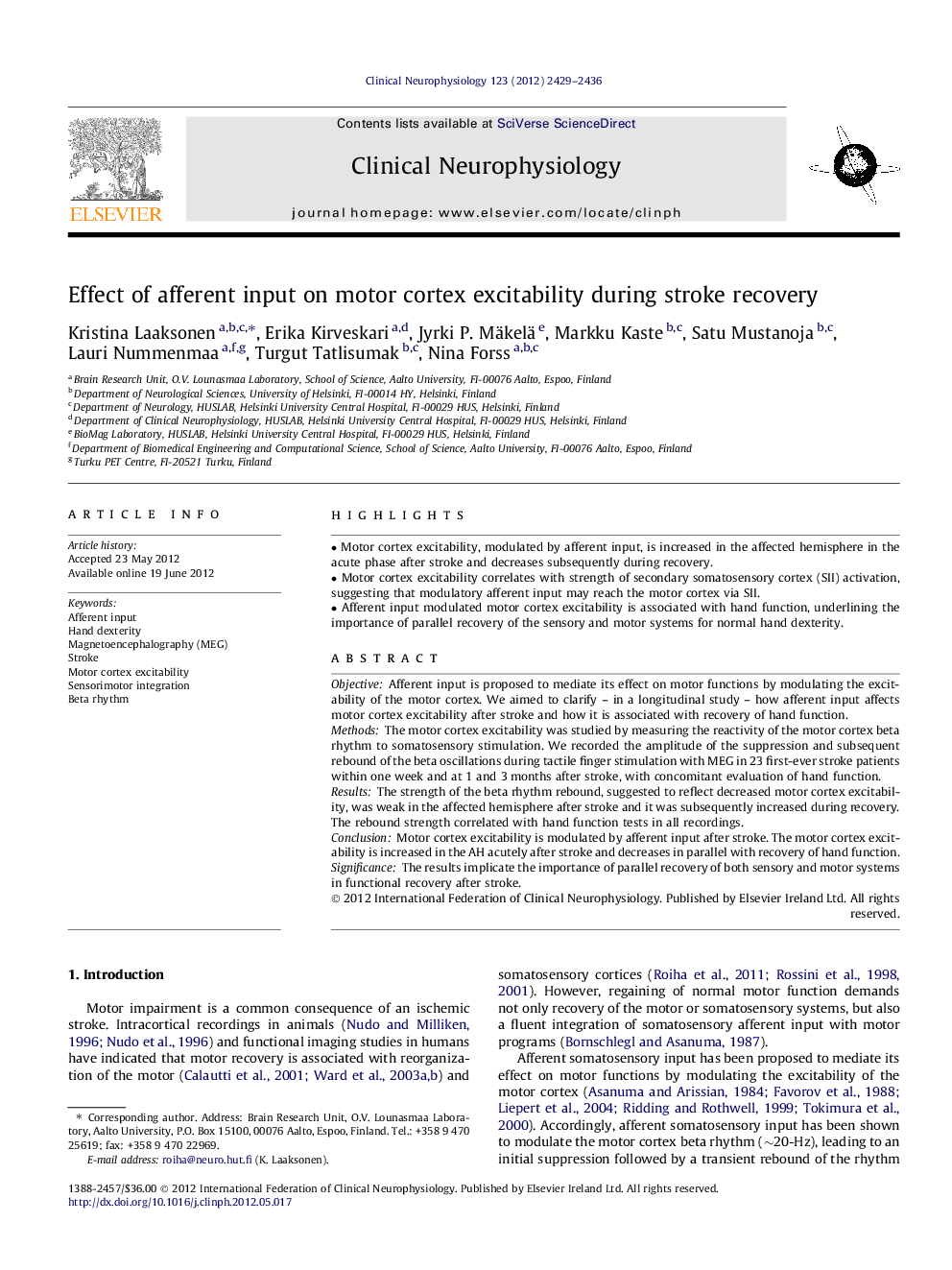| Article ID | Journal | Published Year | Pages | File Type |
|---|---|---|---|---|
| 6008644 | Clinical Neurophysiology | 2012 | 8 Pages |
ObjectiveAfferent input is proposed to mediate its effect on motor functions by modulating the excitability of the motor cortex. We aimed to clarify - in a longitudinal study - how afferent input affects motor cortex excitability after stroke and how it is associated with recovery of hand function.MethodsThe motor cortex excitability was studied by measuring the reactivity of the motor cortex beta rhythm to somatosensory stimulation. We recorded the amplitude of the suppression and subsequent rebound of the beta oscillations during tactile finger stimulation with MEG in 23 first-ever stroke patients within one week and at 1 and 3Â months after stroke, with concomitant evaluation of hand function.ResultsThe strength of the beta rhythm rebound, suggested to reflect decreased motor cortex excitability, was weak in the affected hemisphere after stroke and it was subsequently increased during recovery. The rebound strength correlated with hand function tests in all recordings.ConclusionMotor cortex excitability is modulated by afferent input after stroke. The motor cortex excitability is increased in the AH acutely after stroke and decreases in parallel with recovery of hand function.SignificanceThe results implicate the importance of parallel recovery of both sensory and motor systems in functional recovery after stroke.
⺠Motor cortex excitability, modulated by afferent input, is increased in the affected hemisphere in the acute phase after stroke and decreases subsequently during recovery. ⺠Motor cortex excitability correlates with strength of secondary somatosensory cortex (SII) activation, suggesting that modulatory afferent input may reach the motor cortex via SII. ⺠Afferent input modulated motor cortex excitability is associated with hand function, underlining the importance of parallel recovery of the sensory and motor systems for normal hand dexterity.
